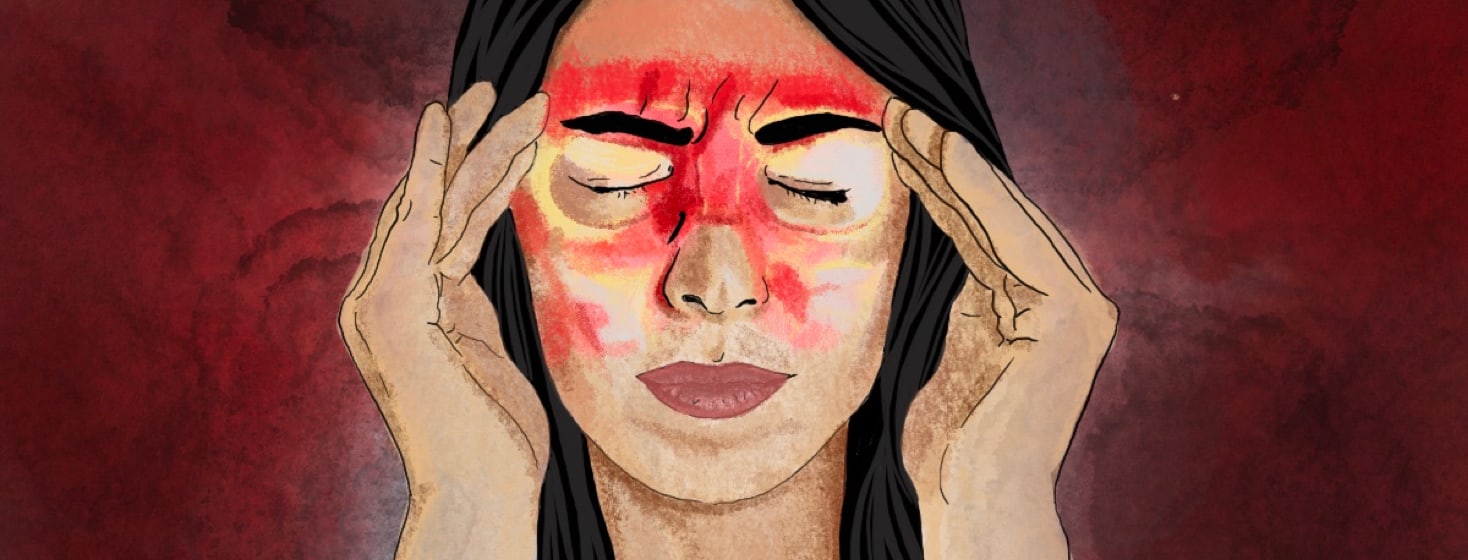Lupus Headaches
Reviewed by: HU Medical Review Board | Last reviewed: January 2020 | Last updated: April 2024
Headaches that do not improve with over-the-counter headache medicine are one of the most common neurological symptoms of lupus. In fact, 72 percent of people with lupus experience headaches.1-2
About 20 percent of people with lupus also experience migraine-like headaches, which is roughly twice compared to the general population.3 However, doctors do not understand if or why lupus seems to cause headaches.
Lupus headaches causes
Some doctors believe that headaches and migraines develop during active stages of the disease when lupus inflames the central nervous system (the spinal cord and brain) and the blood vessels.1,3
Lupus headaches are more common in people with Raynaud’s phenomenon, another circulatory complication of lupus. Some lupus headaches seem to be caused by vasculitis, an inflammation of the blood vessels that is most often seen when lupus is active.1
People with lupus who also have fibromyalgia or antiphospholipid antibody syndrome (APS) are more likely to get headaches.2
Lupus headaches diagnosis
If you have severe headaches that do not go away with over-the-counter drugs, you may need to see a neurologist, a specialist who treats conditions of the nervous system. The neurologist may order some tests to try and understand whether you are experiencing lupus headaches or migraines. The tests used may include a spinal tap (lumbar puncture) or a blood vessel study called an MRA or CT-angiogram.
Lupus headaches treatment
The treatment your doctor recommends will depend on what kind of headaches you are having. Lupus headaches are often treated with steroids if over-the-counter pain relievers do not work.
The first line of treatment for migraines is the migraine prevention diet. If diet alone does not bring relief, drugs like nortriptyline may be prescribed.
Some people find that alternatives to medicine help relieve headache pain, including warm baths or showers, acupressure, acupuncture, or behavior modification techniques such as meditation, guided imagery, or yoga.
